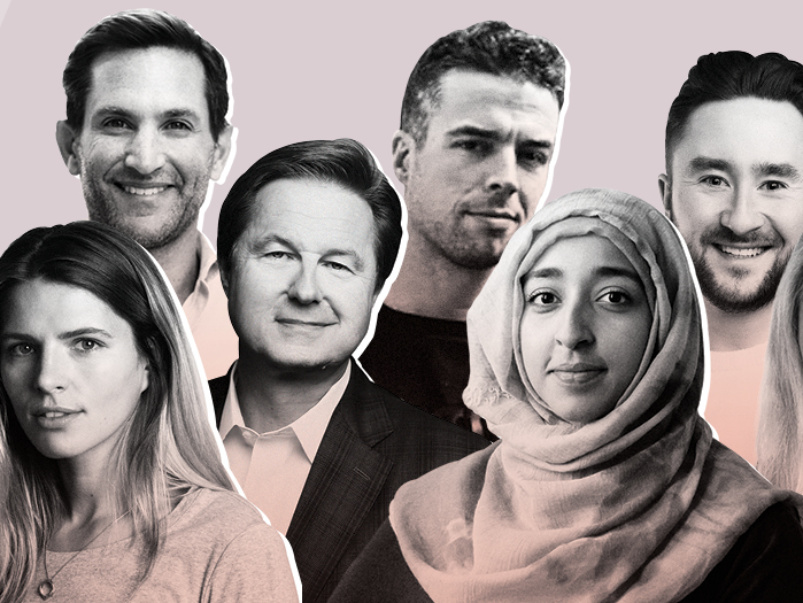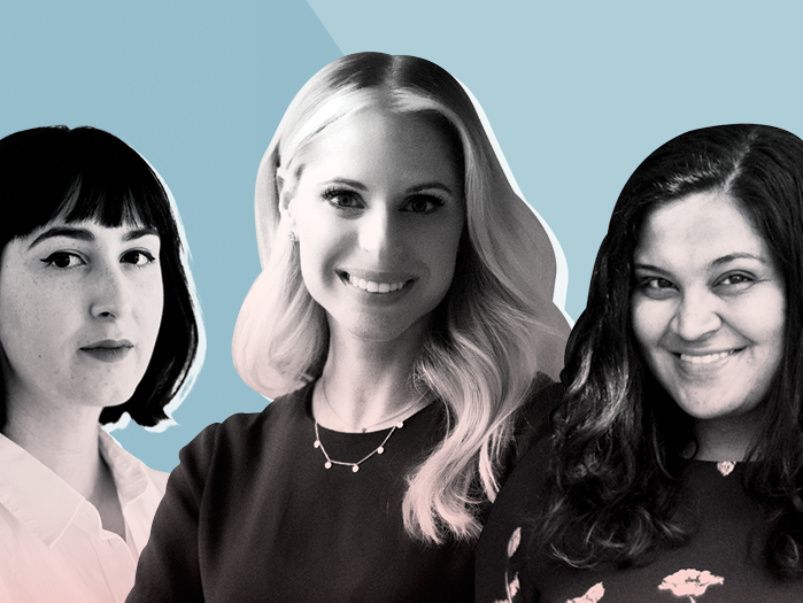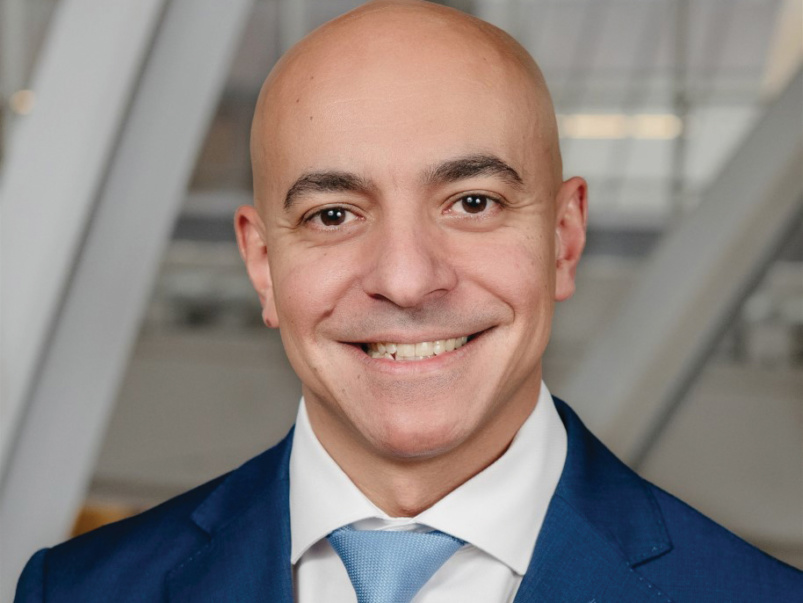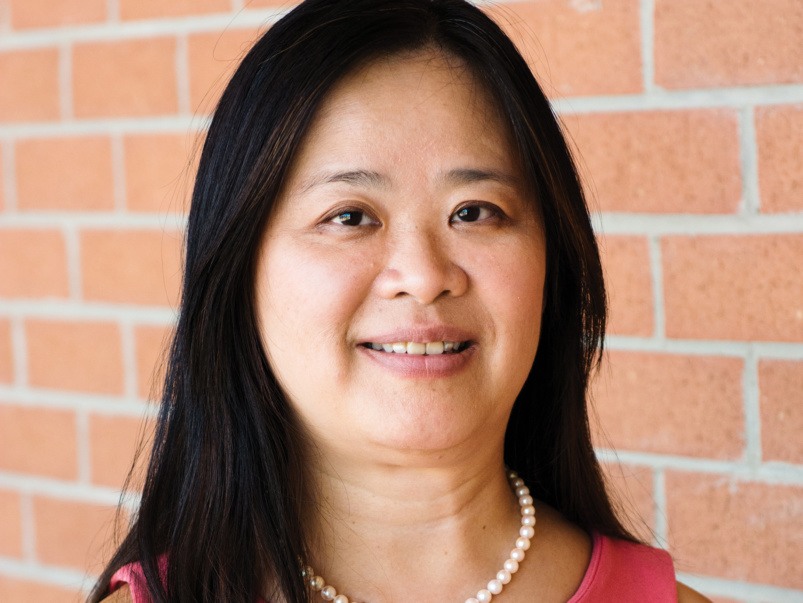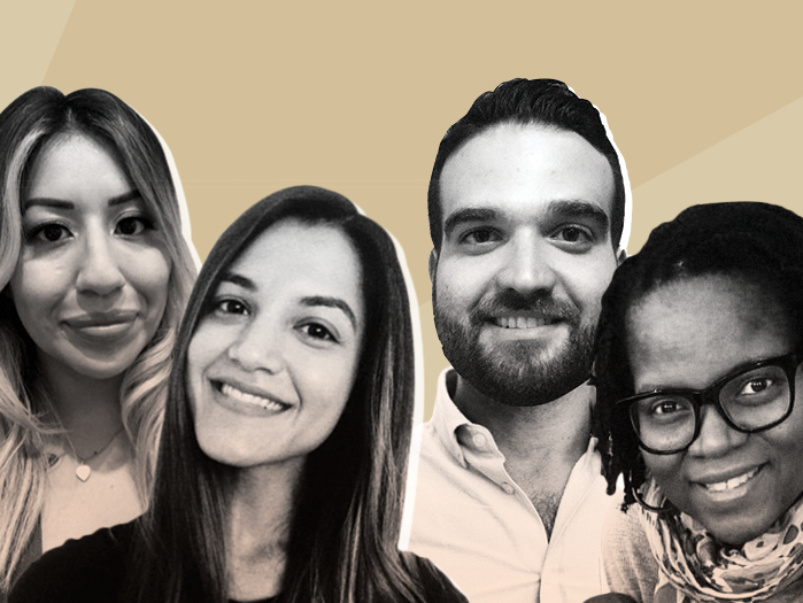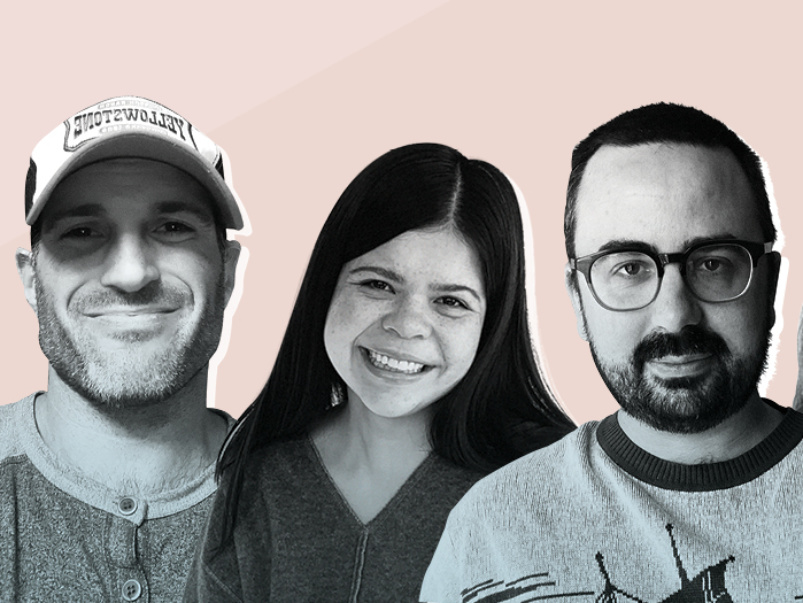The e-health revolution: health start-ups are the next big thing in tech
We quizzed eight CEOs about their eureka moments, their wellness regimens and favourite TV medical dramas

Huda Idrees
Founder and CEO, Dot Health
How it works: Dot Health securely transmits records between providers and patients.
Founded: 2016
HQ ’hood: Distillery District
Employees: 16
Cost: $69 for each document request.
Financial backing: Investors include Bloom Burton and Co., Daniel Debow and Howard Lichtman.
Eureka moment: “My friend’s dad was diagnosed with liver cancer in 2015. He was seeing five specialists and having a hard time keeping track of all his lab work and therapy results, so I built him a web app to help him stay organized.”
For my company, the pandemic was… “An accelerating force.”
Wellness regimen: “Cooking, praying, and running regularly.”
Guilty pleasure: “Utz cheese balls from Costco. So good they’re bad.”
Missed most during the pandemic: “House parties.”
Most anticipated post-pandemic activity: “Road trips. Cape Breton is next.”
Favourite medical drama: “New Amsterdam, lately. Max Goodwin feels like someone who would partner with us in a heartbeat.”
Best sci-fi medical invention: “Downloading skills into your brain, like in The Matrix. Learning tae kwon do in a few minutes? Yes please.”
Must-have health app: “Nike Run Club. Its guided runs are great, and it gets me going on days I’d really rather not run.”
Worst thing about Toronto: “The lineups for everything.”
Best thing about Toronto: “The sheer number of hiking trails. What a blessing.”

Luke Vigeant
President and co-founder, Inkblot
How it works: Inkblot matches its users with therapists for online counselling sessions.
Founded: 2015
HQ ’hood: King West
Employees: 54
Users: 250,000
Cost: $37.50 per half hour.
Financial backing: $4 million from Techstars and other investors before it was acquired by Green Shield Holdings in 2021.
Eureka moment: “I lost someone close to me to suicide, and my co-founder, Arash Zohoor, was struggling to refer his patients to affordable mental health treatments. I’m a nerd, he’s a doctor, so we teamed up.”
Wellness regimen: “Spending time with family. Also, my office is in a shed behind our house, which helps me separate work and life.”
For my company, the pandemic was… “A source of growth. Our client base is 10 times bigger now.”
For my personal health, the pandemic was… “Eventful. My wife gave birth in our upstairs bathroom. I called 911 to get instructions about how to deliver a baby. Luckily, professional help arrived at the last minute.”
Missed most during the pandemic: “Seeing the team. Three-quarters were onboarded virtually, so we’ve never hung out.”
Best sci-fi medical invention: “There’s only one answer, right? The Tricorder from Star Trek.”
Most hated buzzword: “#RiseAndGrind. I’ve seen it on walls in start-up offices and I have a visceral reaction to it.”
Must-have health app: “Ring Fit Adventure, a Switch game that tricks you into working out.”
Fun fact: “Ten years ago, I quit my job at IBM and moved into a Volkswagen Rabbit with my wife.”

Sam Duboc
Executive chair, MindBeacon
How it works: MindBeacon allows its users to text or video chat with therapists.
Founded: 2015
HQ ‘hood: Yorkville
Employees: 450
Users: 100,000
Cost: Free through OHIP.
Financial backing: A $75-million IPO in December of 2020.
Eureka moment: “I faced challenges seeking mental health support for myself, between finding a good therapist, waiting for availability, making time for appointments, and the cost. My wife, Claire, and I partnered with two psychologists to form MindBeacon. We planned to build bricks-and-mortar clinics across Canada, but soon realized we needed to change the model completely.”
Wellness regimen: “Regular exercise, reading and focusing on my mental wellness.”
Guilty pleasure: “Chocolate chip cookies or Manhattans—it’s a close one.”
For my company, the pandemic was… “An accelerator.”
For my personal health, the pandemic was… “A mixed experience.”
Missed most during the pandemic: “People.”
Most anticipated post-pandemic activity: “Bringing our company together for an in-person social.”
Best sci-fi medical invention: “Tricorder.”
Most hated buzzword: “Virtual.”
Most used buzzword: “Continuum of care.”
Favourite videoconference platform: “Microsoft Teams.”
Must-have health app: “Peloton. It’s great for physical wellness and stress release.”
Fun fact: “I have my master diving certification.”

Brett Belchetz
CEO, Maple
How it works: Maple connects Canadians to doctors via video chat.
Founded: 2015
HQ ’hood: Downtown
Employees: 120, plus more than 1,500 contracted health care providers.
Users: About two million.
Cost: From $49 per visit or $30 per month, plus some services are covered by OHIP.
Financial backing: $96 million from investors including Shoppers Drug Mart.
Eureka moment: “I was working as an ER physician, constantly frustrated by the eight-hour waits my patients experienced to see me at the hospital. One week in 2014, I easily solved three different friends’ medical problems by text message and video chat. I realized that remote virtual care really worked.”
Wellness regimen: “Running three or four times a week, and spending at least an hour each evening with my wife and no devices.”
Guilty pleasure: “I have a massive dessert problem. I can’t say no to any form of pie, cake, ice cream, etc.”
Most anticipated post-pandemic activity: “A big, crowded concert or sporting event.”
Health care origin story: “As a kid, I watched The Fugitive with Harrison Ford, who played a doctor. I thought he was so cool that I had to do this job.”
Most accurate doctor stereotype: “Terrible, illegible handwriting.”
Handwriting self-rating: “Negative 10 out of 10.”
Favourite medical drama: “They’re all unwatchable if you have medical training.”
Must-have health app: “Fitbit. I religiously track my steps and activity levels.”

Emma Stern
Co-founder and COO, Felix
How it works: Felix’s doctors provide diagnoses and prescriptions for stigmatized health issues (hair loss, acne, erectile dysfunction, etc.) through an online form.
Founded: 2019
HQ ’hood: Fashion District
Employees: 30
Users: 225,000
Cost: $40 per online visit, plus prescription medication costs (if not covered by insurance).
Financial backing: $13.4 million from angel investors and venture funds.
Eureka moment: “My co-founder, CEO Kyle Zien, and I had a classic aha moment while chatting with a friend dealing with male pattern baldness. He found a prescription solution from a doctor after struggling for years, and he finally got his confidence back.”
Wellness regimen: “Consult a doctor when I think I have a problem. Trust the doctor. Follow the doctor’s advice.”
Missed most during the pandemic: “My sister, who lives in Paris, and her new baby.”
Most anticipated post-pandemic activity: “Vacation with the aforementioned sister.”
Favourite medical drama: “House. I always found the diagnostic puzzles fascinating.”
Best sci-fi medical invention: “Cryogenic freezing à la Austin Powers.”
Fun fact: “I love knitting so much. Being pregnant during the pandemic, I became even more obsessed. My daughter wears pretty much exclusively homemade looks.”
Most hated buzzword: “Uber of health care.”
Most used buzzword: “Patient-centric.”
Worst thing about Toronto: “April.”
Best thing about Toronto: “September.”

Nicholas Chepesiuk
Founder and CEO, OnCall Health
How it works: OnCall builds telemedicine software for hospitals, clinics and other health care organizations.
Founded: 2016
HQ ’hood: Chinatown
Employees: 55
Users: About 5,000 health care providers across 500 organizations.
Cost: From $99 for small clinics.
Financial backing: $10 million, including a recent round led by Base10 Partners.
Eureka moment: “Working in high-growth start-ups in Toronto inspired me to start my own. A lot of my family work in health care, so this came naturally.”
Wellness regimen: “I run almost daily, play tennis, and the pandemic has definitely got me into cooking a lot more.”
Guilty pleasure: “Burger’s Priest.”
Most anticipated post-pandemic activity: “Going to Ireland to see my girlfriend’s family later this year.”
Favourite medical drama: “Children’s Hospital, a weird, sometimes hilarious comedy that parodies medical dramas.”
Best sci-fi medical invention: “I’m torn between the Tricorder from Star Trek and the med bay from Elysium.”
Must-have health app: “Nike Run Club.”
Most hated buzzword: “When I hear ‘blockchain’ and ‘AI’ mentioned in the health care technology space, all I think is that there are way more pressing lower-tech problems we should be focused on solving.”
Alternate-reality dream job: “If everything goes south, my dream chill job is tennis instructor.”
Fun fact: “I started online hip-hop dance classes during the pandemic.”

Marion Adams
Co-founder and CEO, Hasu eCounselling
How it works: Hasu provides online therapy through video chat and text.
Founded: 2016
HQ ’hood: Corktown
Employees: 35 (“including our wonderful therapists, who I wouldn’t dare call employees”).
Users: More than 1,000.
Cost: $95 per hour; $30 per week for unlimited text therapy.
Eureka moment: “I lost a friend to suicide in university and faced a weeks-long wait for grief counselling. I wanted to address the issue so that no one would have to feel the way I did.”
Wellness regimen: “Speaking to a therapist, biking while blasting Fleetwood Mac (Rumors, of course) and playing fetch with my cat.”
Guilty pleasure: “I go to the street-meat stand on my corner more often than I’d like to admit. Let’s just say I know all of the owner’s kids’ names.”
Missed most during the pandemic: “Hugging.”
Best sci-fi medical invention: “Dr. Crusher’s Tricorder from Star Trek, no question.”
Most hated buzzword: “Synergy.”
Most used buzzword: “Regrettably, synergy.”
Favourite video conference platform: “Hangouts.”
Must-have health app: “The Calm meditation app helps me fall asleep when I have an important meeting or presentation the next day.”
Worst thing about Toronto: “The curse upon the Leafs.”
Best thing about Toronto: “The diversity, the food, the energy. And it’s home, which counts for a lot.”

Shea Balish
Co-founder and CEO, Curv Health
How it works: Curv connects users with fitness coaches, physiotherapists and other pros through messaging and video calls.
Founded: 2018
HQ ’hood: Queen and John
Employees: 15
Users: 12,000
Cost: $120 for an initial assessment; $25 to $100 for follow-ups.
Financial backing: $1.5 million from angel investors, NewStack and NewFund.
For my company, the pandemic was… “An accelerant.”
For my personal health, the pandemic was… “Surprisingly positive. I found a love for road cycling.”
Wellness regimen: “Seven-plus hours of sleep every night, cardio and strength training five times a week, and as many steam rooms and cold showers as I can fit in.”
Guilty pleasure: “Probably alcohol.”
Missed most during the pandemic: “Friends.”
Most anticipated post-pandemic activity: “Returning to the gym, 100 per cent.”
Best sci-fi medical invention: ”Life extension, which will exist in the coming decades.”
Most hated buzzword: “Telehealth.”
Most used buzzword: “Asynchronous care.”
Favourite videoconference platform: “Zoom.”
Must-have health app: “Peloton. I love the blend of music and programming.”
Alternate-reality dream job: “Investing in start-ups.”
Worst thing about Toronto: “Lack of easy access to green space.”
Best thing about Toronto: “The increasing number of opportunities to realize bold endeavours.”
